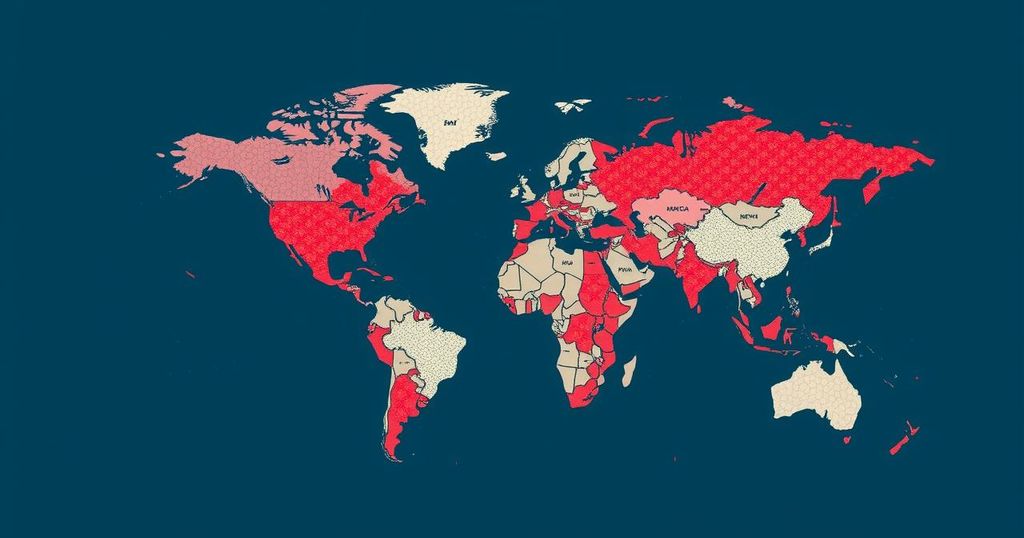Biden Administration to End Humanitarian Parole Program for Specific Migrants

The Biden administration will not extend a humanitarian parole program for Haitian, Cuban, Venezuelan, and Nicaraguan migrants, which allowed them to live in the U.S. for two years. With approximately 214,000 Haitians and many other migrants affected, those nearing the end of their time must find alternative legal statuses or depart the country. This decision, made as the 2024 elections approach, raises concerns for immigrant communities and reflects ongoing challenges in U.S. immigration policy.
The Biden administration has decided not to extend a two-year humanitarian parole program that permitted migrants from Venezuela, Haiti, Cuba, and Nicaragua, who arrived by plane with sponsorship, to reside and work in the United States. Initiated in 2022 to manage the influx of migrants attempting to cross the U.S.-Mexico border, the program allowed eligible individuals to live in the U.S. while they pursued other legal immigration avenues. As the current administration prepares for the upcoming election, this decision may have significant repercussions for the South Florida region, where numerous members of these communities reside. Following a crackdown on illegal crossings, the program expanded to include additional nationalities facing such issues at the border. About 214,000 Haitians, 117,000 Venezuelans, 111,000 Cubans, and 96,000 Nicaraguans have benefited from the program since its inception. As the two-year deadline approaches, those affected must now secure an alternative legal status, depart from the U.S., or risk deportation. Currently, options like “temporary protected status” are available for Venezuelans and Haitians, allowing them to remain in the U.S. due to violence and instability in their respective nations. New migrants still have the opportunity to apply for this parole program, which does not impact individuals from Afghanistan or Ukraine. The decision was announced amid increasing scrutiny over immigration strategies as the 2024 elections draw nearer. Vice President Kamala Harris is trying to emphasize a more stringent approach to immigration policies, particularly in light of critiques from Republican opponents regarding the administration’s handling of immigrant affairs, especially targeting the Haitian population. This move aligns with Homeland Security’s acknowledgment of the program’s original intent to enable migrants to seek legal immigration benefits and contribute to U.S. society. In summary, the ending of this program poses both challenges and opportunities for the large communities of Venezuelan, Haitian, Cuban, and Nicaraguan migrants already residing in the United States, as the government navigates the complexities of immigration reform ahead of a pivotal election year.
The Biden administration launched the humanitarian parole program in 2022 in response to rising numbers of migrants from Venezuela, Haiti, Cuba, and Nicaragua attempting to enter the U.S. The program was designed to provide a legal alternative for individuals arriving via air and was intended to offer them a pathway to live and work legally in the United States. This initiative is particularly significant for South Florida, which houses a substantial population of these communities. The program’s cancellation means these individuals now face uncertain futures, as they must either apply for legal status or leave the country. The administration’s decision is framed within a broader context of immigration debate as the nation heads toward major elections, making immigration policies a top issue for candidates. The evolving political landscape is influencing public opinions and policy implementations surrounding immigration, further affecting communities across the nation.
The Biden administration’s decision to not extend the humanitarian parole program has significant implications for migrants from Venezuela, Haiti, Cuba, and Nicaragua, especially within their communities in South Florida. As individuals who benefited from this program now face potential deportation or the need for alternative legal statuses, the cancellation underscores the complex challenges entwined with U.S. immigration policy. As the political climate shifts with the upcoming elections, immigration remains a contentious issue, influencing both policy direction and public sentiment toward migrants.
Original Source: www.wlrn.org







